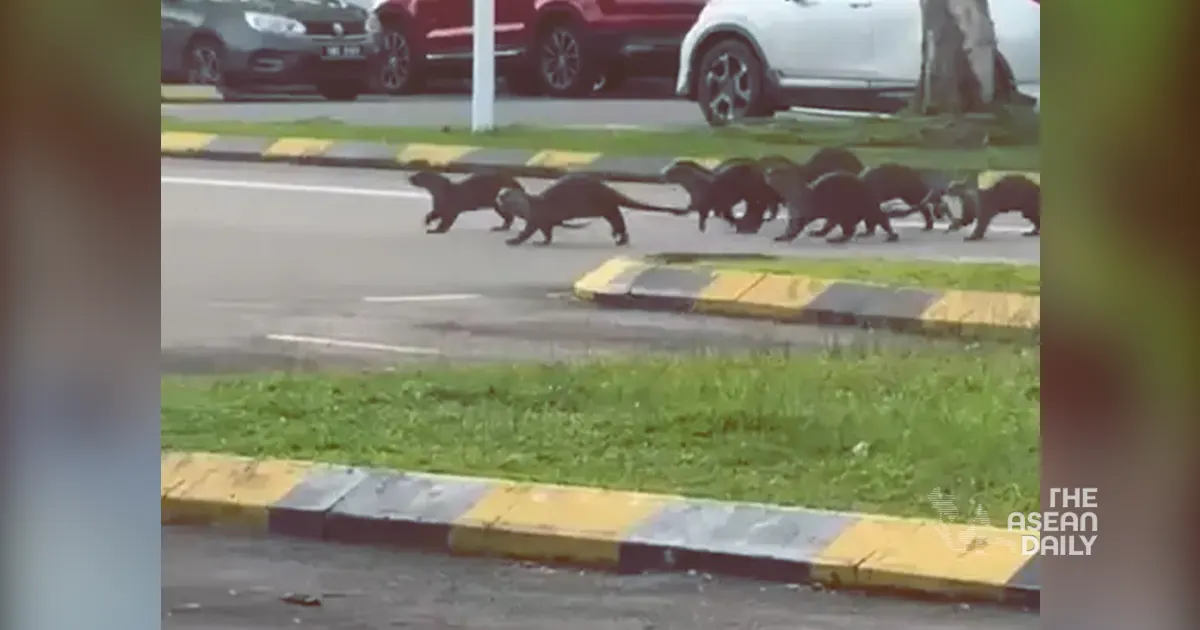12-9-2024 (KUALA LUMPUR) What began as a routine morning jog for Mariasella Harun at Perdana Park in Tanjung Aru quickly descended into a nightmare scenario that has left the local community in shock. The 40-year-old housewife found herself at the centre of an extraordinary and frightening encounter with a group of otters, marking the first reported case of its kind in the area.
On Wednesday morning, as the sun was just beginning to warm the day, Harun set out on her daily run, unaware of the danger that lurked nearby. “I had just completed my warm-up and was 2 kilometres into my run when I spotted something emerging from a drain,” she recounted, her voice still trembling from the ordeal. “At first, I mistook it for a cat, but then it leapt out and bit me. Suddenly, I was surrounded.”
What followed was a harrowing five-minute struggle as Harun fought desperately against the onslaught of otters. Her cries for help eventually attracted the attention of fellow joggers, who rushed to her aid only to find themselves caught up in the fray as well.

The attack left Harun with significant injuries to her arms, legs, and head, necessitating immediate medical attention at Queen Elizabeth Hospital. There, doctors administered antibacterial medication and a rabies vaccine, emphasising the potential severity of animal bites. “They’ve told me I need to stay in hospital for observation,” Harun explained, “and my wounds can’t be stitched right away due to the risk of complications.”
This unprecedented incident has sent shockwaves through the local community and wildlife experts alike. Roland Niun, director of the Sabah Wildlife Department, expressed his surprise at the otters’ behaviour. “This is highly unusual,” he stated. “Otters are generally harmless creatures. They typically only become aggressive when they feel threatened or provoked, or if they’re protecting their young.”
Niun’s team, dispatched to investigate the incident, discovered that the otters had gained access to the park through a damaged fence, which has since been repaired. “We’re asking the public to remain vigilant and report any further otter sightings in the park,” Niun urged. “If they return, we may need to consider relocation.”
The incident has sparked a broader conversation about human-wildlife interaction in urban areas. Otters, protected under Schedule 2 of the Wildlife Conservation Enactment 1997, are not typically found in park environments, preferring riverine areas and lakes. Their presence in Perdana Park raises questions about habitat encroachment and the challenges of coexistence between humans and wildlife in rapidly developing regions.
As Harun begins her recovery, both physically and emotionally, from this traumatic event, local authorities are taking steps to prevent any recurrence. “We strongly advise the public not to approach, feed, or provoke otters in any way,” Niun emphasised. “While their presence can be an important indicator of healthy ecosystems, it’s crucial that we maintain a respectful distance.”




